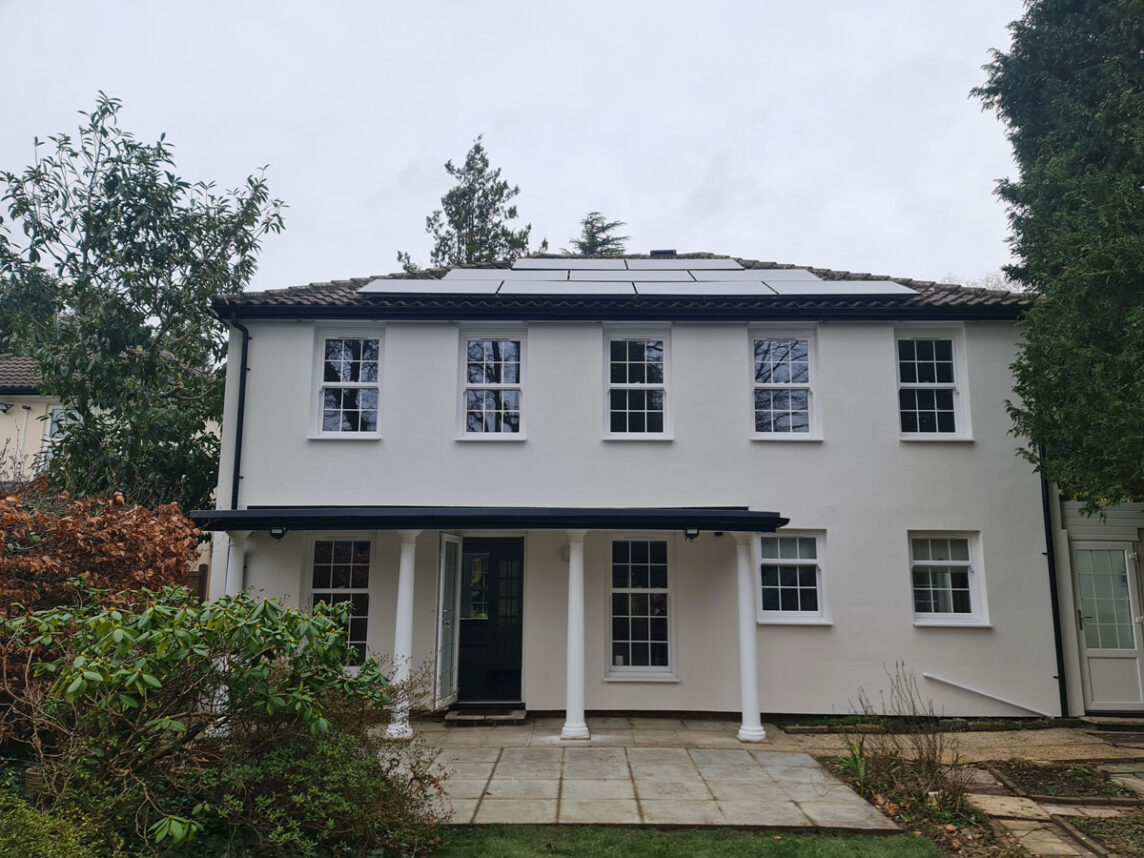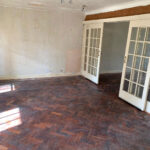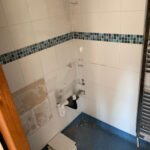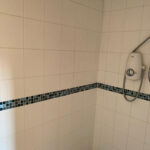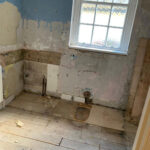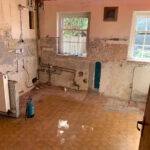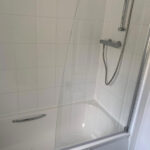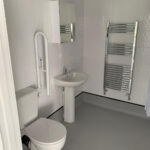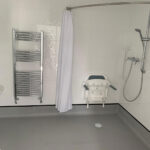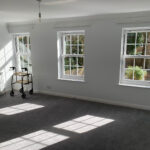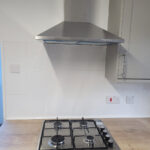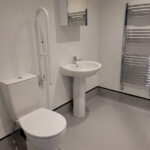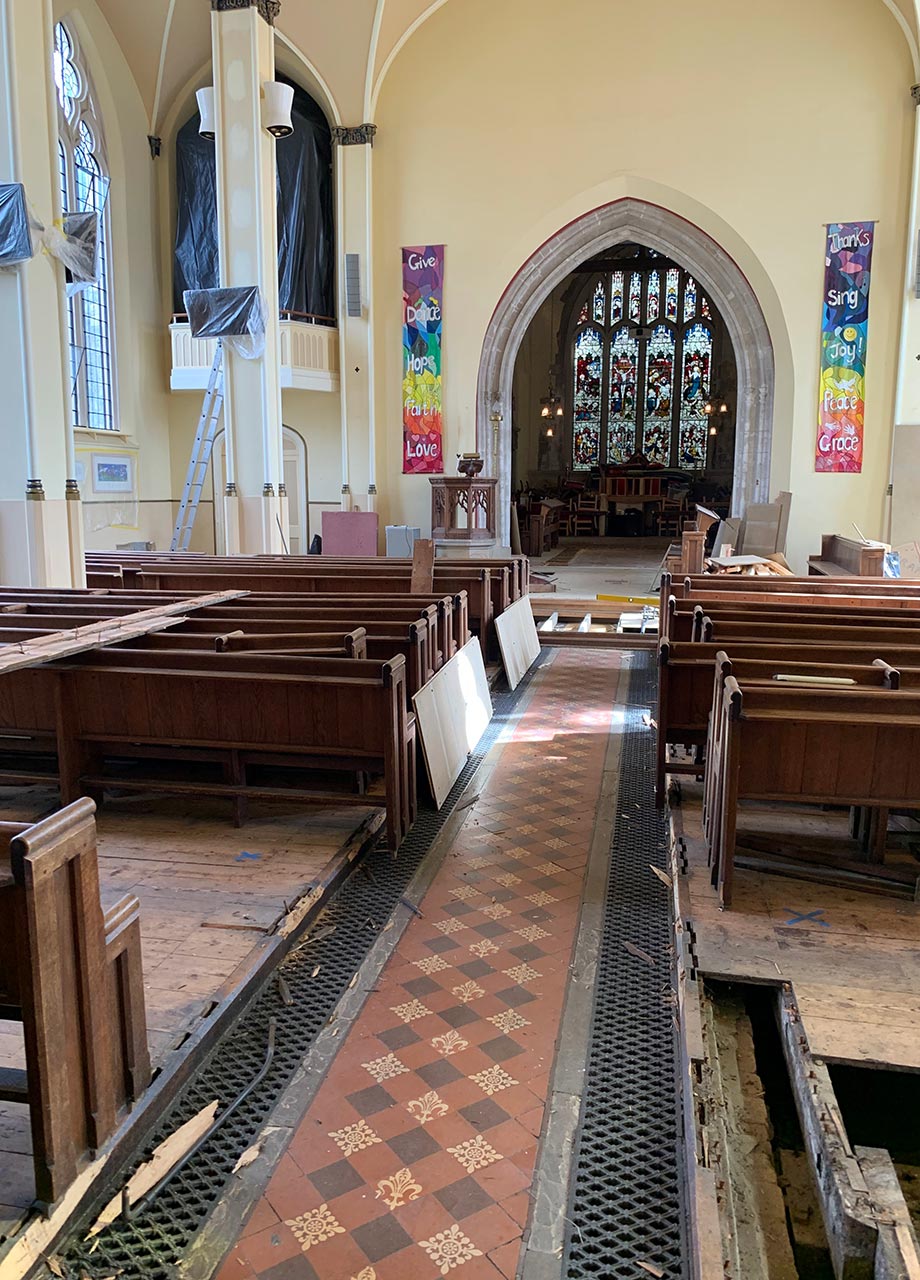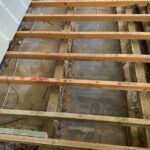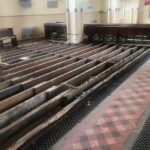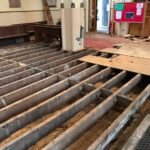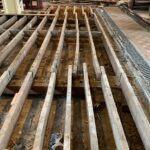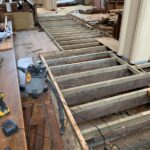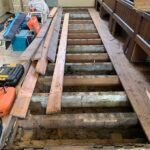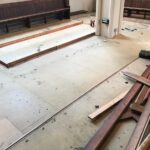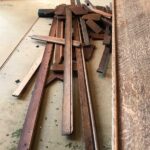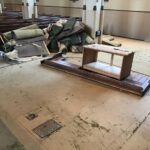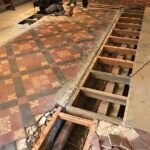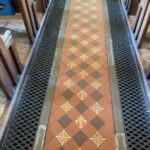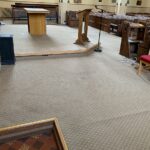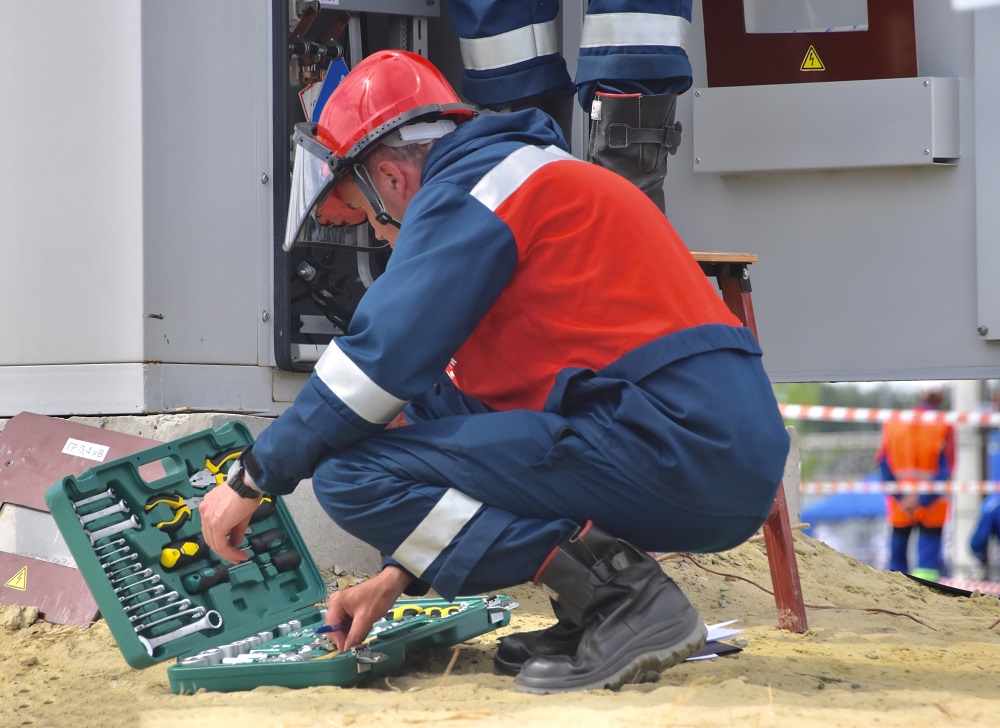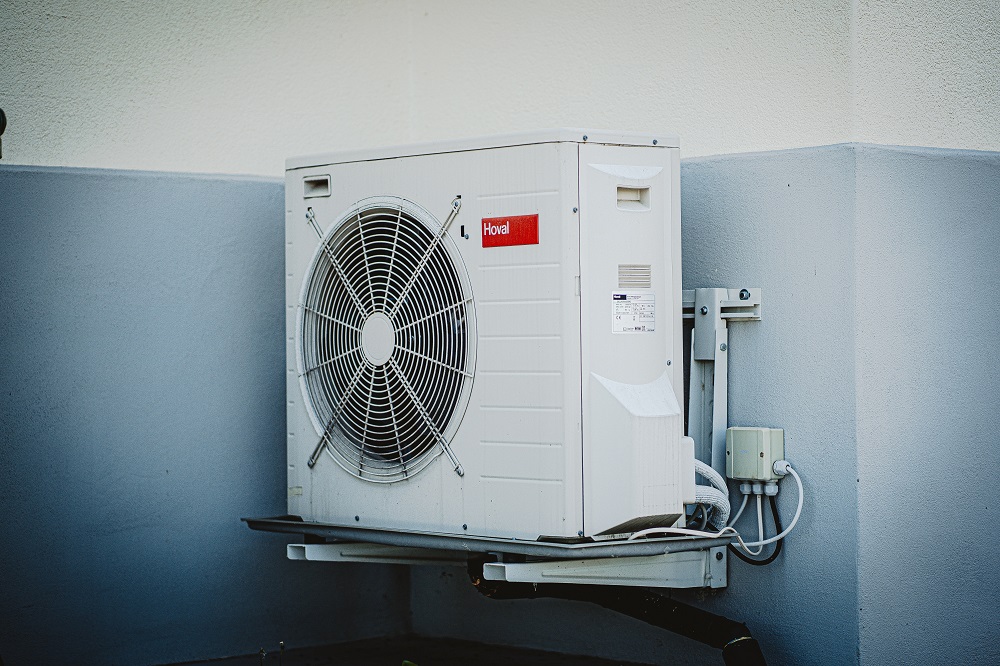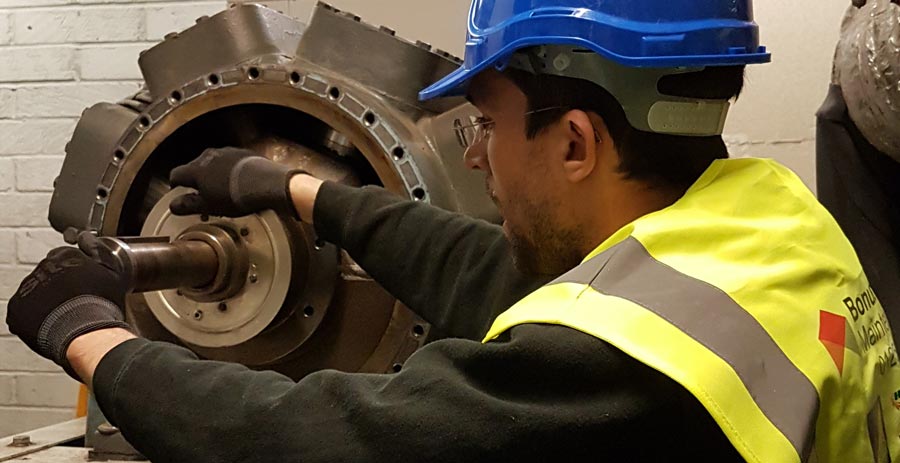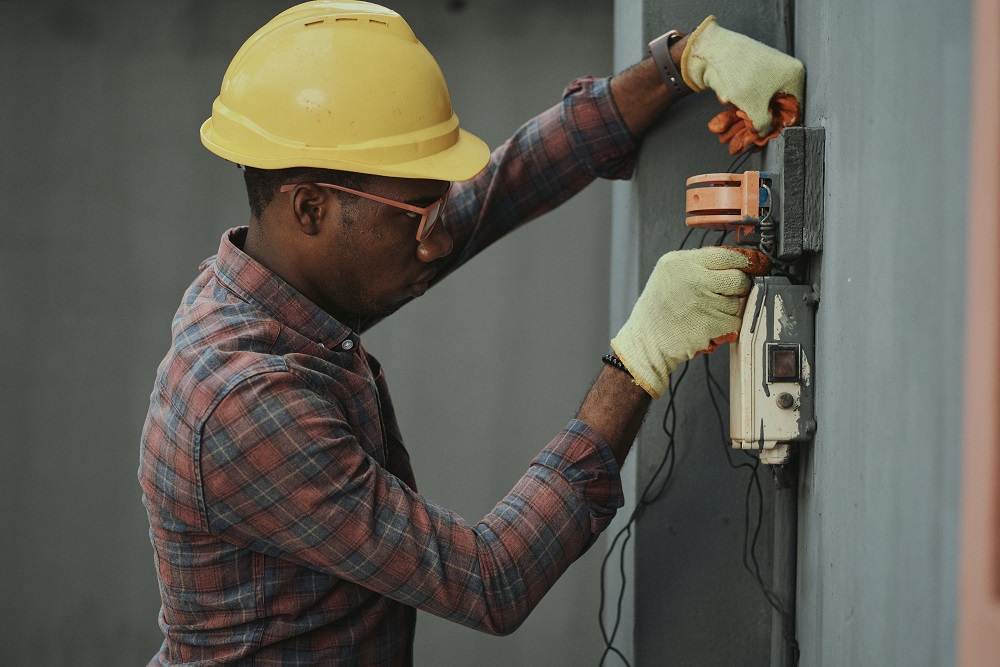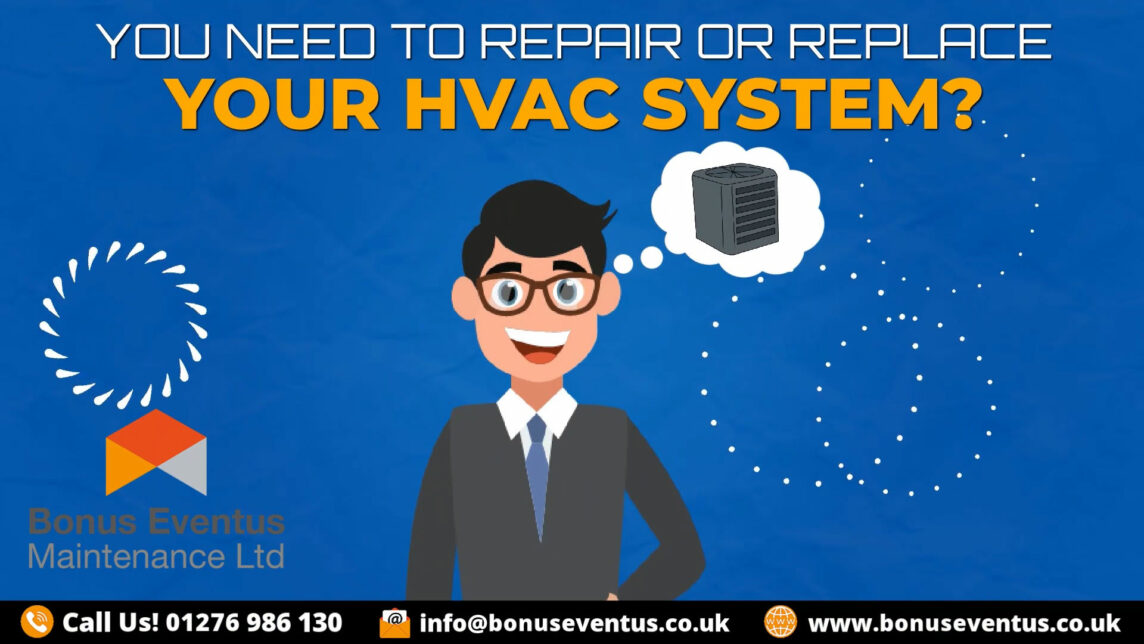We are so very grateful for all the diocese has done at Woodham which is now a lovely vicarage and family home. Martin and his team at Bonus Eventus were absolutely brilliant and could not have been more helpful with every aspect of the refurbishment.
Recent Posts by Bonus Eventus
Making The Most Of Planned Preventative Maintenance
Heating, ventilation and air conditioning systems aren’t just machines. They are intricate organisms, threading through your building and creating the perfect environment for work, learning or living. We like to think that HVAC systems are actually more like the human body. Each system has its own set of systems, all dependant on one another and carefully in balance, and all need taking care of. If you avoid the dentist for years, eventually you’ll get a cavity and have to go for a long and expensive procedure – the same goes for your HVAC systems! The equivalent of a dentist for HVAC systems is planned preventative maintenance, and today we want to explain what that looks like, and why you need to invest in it for your commercial properties.
What is HVAC Maintenance?
The systems that keep a building running are the key to maintaining a healthy and comfortable environment inside, and in this case that is the HVAC systems. HVAC (which stands for heating, ventilation and air conditioning) are an essential part of creating comfortable living and working environments. Each unit and system varies depending on the size and nature of the building and your requirements – with some being relatively simple others incredibly complex and intricate. Their size can also vary from very small units for individual offices to huge machines and industrial heat pumps designed for large factories, office buildings or schools. But they are machines, and just like any other they require periodic maintenance to ensure they are working at maximum efficiency and won’t break down. If your HVAC systems aren’t regularly maintained, then you could end up spending much more on running costs as parts become dirty, clogged or damaged, and face a much bigger bill if the system fails (not to mention any damage to your building and loss of earnings). So we always recommend bringing in a professional to run more comprehensive checks and perform any tweaks or repairs the machines may need.
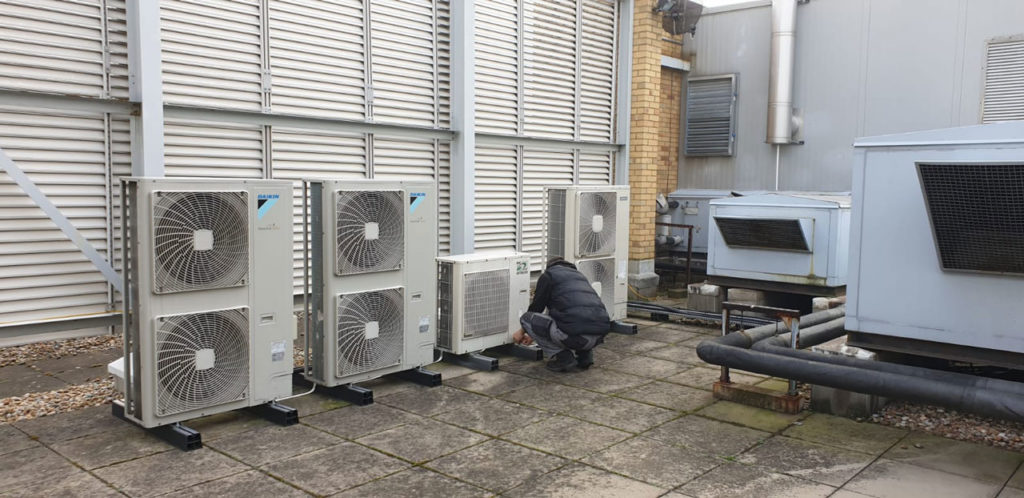 Why Invest in Preventative Maintenance?
Why Invest in Preventative Maintenance?
When it comes to preventive HVAC maintenance, you should think of it in the same way as you do maintenance on your car. If you don’t change the oil, replace the belts and filters before they start to wear and damage and keep it running effectively then the car won’t run. But instead of waiting for the parts to fail and ending up without a car while you wait to replace them, taking steps to repair and replace them before that stage saves you time, money and stress.
Like any electrical and filtration systems, regular maintenance includes cleaning, topping up any fluids or other components and carrying out safety checks to ensure none of the elements are faulty. This can prevent catastrophic failures down the line that could otherwise lead to fires or gas leak problems, putting the lives of your tenants at risk. A well-maintained HVAC system keeps your air clean, improves the life of the system itself and keeps it running efficiently.
Some of the benefits of investing in preventative maintenance include:
- Lower running costs: Components within machines can wear down, get damaged and eventually fail. This can take time, and there are usually warning signs along the way. One of those is an increase in running costs, as the system has to work harder to compensate for the damaged component. The more components that are damaged, the higher your running costs will be. Regular maintenance allows you to catch issues before they have a chance to cause problems, keeping your running costs down.
- Extend the life of your system: HVAC systems aren’t cheap, so you want to make it last as long as possible. Repairing or replacing individual components as they begin to fail is much more cost-effective, and means you can extend the life of your HVAC system for many years.
- Improve air quality & comfort: Regular maintenance helps your system produce and distribute the warm or cool air more steadily, reducing hot or cold spots and generally making sure your system is working as efficiently as possible. Regular cleaning can also dramatically improve your indoor air quality, which is a huge benefit for office blocks.
- Ensure safety: If something goes wrong in your HVAC system, the consequences can potentially be huge. We’ve been called out to buildings that have been flooded by their HVAC system because it wasn’t properly maintained for several years, and this resulted in the whole building having to be closed and refurbished. Not only was this expensive, but it was also dangerous for anyone working or living in the building. Regular maintenance and safety checks means you can always be sure everyone in your building is safe.
Does Preventative Maintenance Work?
Here’s the kicker. Preventative maintenance does work, but only if the recommendations of technicians are followed and the remedial work is carried out quickly. All too often we’ve seen customers who have had quotes and assessments done for planned maintenance, but they never actually did the work. Instead they treated it as a list of things they needed to keep an eye on. The problem with that approach is we recommend preventative maintenance is done to extend the life of your components and keep everything running smoothly. If you wait until something has started to fail, then it’s already too late, and will cost you more in the long run.
Many companies and property managers still operate a ‘reactive maintenance’ model, where they wait for things to go wrong before they have repair work done, rather than scheduling regular cleaning and maintenance checks throughout the year. The downside to this reactive approach is that a repair on a big failure, or just a full deep clean, can cost you far more than regularly scheduled check-ups. Not only does it cost you more in ongoing running costs as things fail, but your system failing could result in a huge bill for a replacement. By scheduling regular air conditioning check-ups, you can catch and replace failing parts in a staggered way, before they cause problems, and prolong the life of your components.
The good news is that ongoing HVAC maintenance isn’t an expensive outlay for you, unlike the cost of replacing a full unit. While the cost of replacing a complete system can run into the thousands, maintenance of that system will cost a fraction of that and keep your buildings in working order for longer. Not only that, but there is some evidence to suggest that well run HVAC systems could actually save you money in terms of energy and electricity used by your building. By investing in regular maintenance for your HVAC systems you are ensuring lower pay outs for repairs, reducing your emergency call outs (and their charges) and providing a cleaner, more comfortable environment for your tenants. For advice or help with your long-term HVAC maintenance plan, get in touch with the team today to book your free consultation.
You Should Be Paying More Attention To Your Air Conditioning
Air conditioning systems aren’t just machines. They are actually more like the human body. Each unit has its own set of systems, all dependant on one another and carefully in balance, and all need taking care of. Depending on the size of the building and the system, it could be even more delicate.
After all, if you avoid the dentist for years, eventually you’ll get a cavity and have to go for a long and expensive procedure – the same goes for your air conditioning! So, here are a few facts about air conditioning maintenance, and why it should become a regular habit rather than an afterthought.
Being A Clean Freak Is Good!
A clean air conditioning system is a happy air conditioning system, and just like your tumble drier at home, it needs a clean out every now and then. But it’s about more than just keeping the mechanisms looking good. Systems that are dirty are not as energy efficient as clean ones, resulting in a significant reduction in performance and climbing running costs. Not only will it cost you more money to run, but the dirt build up will also increase the stress on the mechanical parts in the system, making them work harder than they should and reducing their lifetime. To top all that off, not cleaning your system can risk a decline in air quality when ventilated and throw off the temperature regulations, resulting in wildly varying air temperatures. In short, if you want your air conditioner to run at its best and not need replacement parts as often, keep it clean!
Being Reactive Costs You Much More
Despite assurances to the contrary, a lot of companies still operate in reactive mode when things go wrong with their air conditioning. This means that they only bother to maintain it when something goes drastically wrong, rather than scheduling regular cleanings and maintenance checks. The downside to being reactive is that a repair on a big failure, or just a full deep clean, can cost you far more than regularly scheduled maintenance. Not only does it cost you more in running costs (see the point above) but your system failing could result in a huge bill for a replacement. By scheduling regular air conditioning maintenance, you can catch and replace failing parts in a staggered way, before they cause problems, and prolong the life of your components.
How To Tell If Your Air Conditioning Needs A Tune Up
There are a few main warning signs to help you figure out when your air conditioner unit needs a little TLC.
Age: You’re not the only one who worries about getting older! We suggest replacing your unit every 15 years, as this is the average age of failure. So, if your air conditioning system is getting to that age, make sure you are looking out for signs of failure, and planning a replacement strategy.
Rising Energy Bills: This is an easy way to test if your air conditioning unit is starting to break down. Take this month’s energy bills, and compare them to last month. Then do the same with this year and last year. If you see a marked increase in the more recent bills, then there is something wrong.
Leaking Water: Finding puddles of water where they shouldn’t be isn’t always a sign of a faulty roof. Sometimes it can point to a leaky air conditioning unit. This leaking is usually caused by a liquid backup, or the overflow of excess condensation. Either way, your first call should be to your air conditioning professional to get it fixed and prevent further problems.
Unpredictable Temperatures: If you’ve set your AC to 20 but you’re still sweating, odds are there is something wrong with your unit. This could be something as simple as a faulty thermostat, or it could be a worn-out unit that’s struggling to cool the air as much as it should. So, if everyone’s getting hot and bothered, get your unit checked.
Strange Noises: Are strange noises ever a good sign? Well, they aren’t good when it comes to your air conditioning unit. If you are hearing whistling noises that sounds like a ghoul is stuck in your pipes, creaking, clunking or any other kind of strange noise, this could be a sign of a bigger problem with your unit, and it needs looking at.
So, if you haven’t checked on your air conditioning unit in months, or just think yours needs a tune up, why not give us a call and arrange your free consultation? At Bonus Eventus Maintenance we specialise in preventative maintenance plans for HVAC equipment, including air conditioning units for domestic and commercial use. If you’d like to know more, or have any questions about your air conditioning, just get in touch with the team today.
What To Look For In A HVAC Technician
If you run a building that has an HVAC system, you need a reliable technician on hand too. HVAC systems require regular and careful maintenance as well as immediate repairs if an emergency arises. From boilers breaking to air conditioning glitching, those mechanical problems need solving fast! But it rarely makes sense to hire someone in-house to tend to your HVAC systems, so instead HVAC maintenance businesses become a core service. Having a trusted HVAC technician on call can be the difference between success and a disaster for your business. But how do you know if you’re choosing the right technician for you and your business? Well, today we wanted to share a few things to look for in your HVAC technician.
Qualifications
One of the very first things you should ask your HVAC technician is what kind of qualifications, accreditations and licenses they hold. Companies who have earned qualifications from professional licensing bodies have proven they are knowledgeable and skilled, so you can move forward with some peace of mind. After all, HVAC maintenance is a complex skill, and both the company and their employees need to have the expertise and knowledge to do so safely. If you choose a technician who doesn’t, you’re exposing yourself and your customers to safety risks, as well as opening yourself up to legal responsibility.
Experience
Beyond qualifications, you want to find a company with experience in managing and maintaining HVAC systems. You want to select a HVAC technician who has practical experience in the field. This separates knowing the theory of maintenance from the practical skill of doing it. An experienced technician will have come across all sorts of problems, and have some creative solutions for them too!
Integrated Approach
HVAC systems aren’t the only things within a building, and they shouldn’t be treated as a standalone system. The internal workings of a building are complex and often closely integrated – your HVAC, fire systems, intruder alarms, access control – all of it is interconnected. So when you’re looking for someone to maintain your HVAC system you want someone who can look at it in the context of the other systems in the building. Not only will this ensure that they are all well maintained, but that they are all working in harmony together.
Corporate Responsibility
This is something a lot of businesses may not think about, but you should also look at how your technician approaches corporate social responsibility. It’s important to choose a contractor who shares your values, and who you can rely on to help you take proactive steps to reduce your global impact. For example, at Bonus Eventus Maintenance we are very proud of our commitment to the environment, and helping our clients achieve carbon neutrality in all of their buildings.
Above all – don’t buy just on price. Speak wot a couple of different contractors about their approach and find someone who ticks all of the boxes. Be flexible with your budget where you can, because spending a little more on the right HVAC technician can save you thousands in the long run. Not to mention all of the time and stress they can help you avoid too!
At Bonus Eventus Maintenance we see ourselves as a holistic HVAC maintenance. While we specialise in regular maintenance and repairs of HVAC systems, we can also manage your wider building systems, providing a one stop shop for all of your building maintenance requirements. If you would like to know more about what to look for in a HVAC technician, or our approach to buildings maintenance, just get in touch with the team today.
Your Building Maintenance Services Checklist
Ongoing maintenance may feel dull, but it’s an essential part of facilities management. After all, many building systems, like fire alarms, pose a serious danger to life if a fault develops. Fault-finding early is the ideal way to keep everyone safe, and this means performing regular maintenance on your building systems. So, here’s a ready-made buildings maintenance checklist that will help you ensure a safe, smoothly running building.
HVAC
Heating, ventilation and air conditioning systems are there to help create a comfortable working environment for everyone in the building. But they are complex systems, and small faults can cause big issues. If these systems break, they can not only be expensive to repair, but they can lead to the building being unusable or even dangerous. This is everything from the air conditioning not working on the hottest day of the year in an office with lots of big glass windows, to a boiler leak causing dangerous gasses to fill the building.
Regular maintenance of these HVAC systems includes cleaning out dirt and debris from filters, replacing parts as they begin to degrade, running checks for leaks and regularly checking that everything is running smoothly. This approach means you will be able to reduce your repair bills overall, avoid disastrous breakdowns and schedule in upgrades for convenient times when they will cause the least disruption.
Plumbing
Burst pipes can be catastrophic in a commercial building. Luckily, proactively inspecting your plumbing can prevent most problems from occurring in the first place. Plumbing checks should be carried out on a regular basis, and should include a visual inspection of pipework for signs of rust or corrosion, as well as pressure checks to detect leaks, low pressure or blockages.
Fire
To be fit for purpose, all commercial fire systems need to meet very specific safety standards. This is because failure to adhere to these standards can be a danger to life. So building managers need to be confident that these systems are working properly. Regular inspections help keep them compliant and aligned with the relevant regulations. This includes all fire detection and suppressant systems in the building, from fire and CO2 alarms to sprinklers and foam fire suppression.
Security
If your building operates security systems, whether that’s full access control or just CCTV, they play an integral role in keeping people and assets safe. Ongoing maintenance helps you get the most out of your system and pick up on any issues that could pose a threat to your property or people. Cabling should be checked, sensors cleaned and repositioned, any batteries changed, alarms tested, and glass inspected for damage to make sure the systems are all working correctly.
Roofing
When was the last time you inspected your roof? They are an integral part of your building, and yet many facilities managers neglect them. But if a tile becomes loose, a facia cracks or a gutter becomes blocked, this can cause issues in other areas of the building. Regular inspections help identify any issues if they are present and give you the ability to fix them in a timely manner.
Power Installations
This is very much in the ‘anything else that requires power’ section. Any sort of power installation, from a boiler to a large generator, will need regular inspections and maintenance, otherwise, they could pose a serious health and safety risk.
At Bonus Eventus Maintenance we don’t just focus on HVAC maintenance. We work holistically to support facility managers with all of their building’s maintenance needs. For more information, just get in touch with the team today.
Achieving Carbon Neutral With Heat Pumps
Carbon is a big source of concern for the world right now. Greenhouse gasses have been flooding our environment for such a long time now that we’ve done irreparable damage to our planet. Thankfully, the world has woken up to the danger, and now we are all able to make changes to reduce our impact and really make a difference. If you own or run a commercial building, one of the ways you can do this and do your part to become carbon neutral, is by switching your heating, ventilation and air conditioning solution from gas to heat pumps.
What Does Carbon Neutral Mean?
Being carbon neutral means you are not contributing any carbon to the environment, but you aren’t removing it either. Given that very few businesses can actively remove carbon from the environment, being carbon neutral is the big goal for all businesses and anyone who owns a building in the UK. This can be achieved by adopting environmentally friendly policies and either upgrading or retrofitting equipment with more eco-friendly alternatives.
In fact, there’s a Zero Carbon Buildings Initiative in place at the moment, in which the UK government pledged to achieve a net zero carbon emissions goal for the country by 2050. Since a large portion of carbon emissions are generated by buildings, this is one of their first focus points. existing buildings to be retrofitted wherever possible with zero carbon solutions, rather than knocked down and a new building erected. This will save a significant amount of carbon by itself, and if new buildings are being designed and constructed in a carbon neutral fashion, suddenly zero carbon buildings become a lot more achievable.
How Do Heat Pumps Help?
The big question now is, what can you do to reduce the carbon footprint of your building? You might think that you’re locked into all of the legacy systems you have in place, but this simply isn’t true. In fact, most modern systems can be retrofitted into older buildings, replacing your less efficient and more wasteful systems in the process. In terms of heating, ventilation and air conditioning for your building, the best answer is a heat pump.
Switching from a gas boiler to a heat pump is a relatively simple process. Choosing the type of heat pump you want will depend on your location, access to resources and other things, and once installed can save you a massive amount of carbon emissions. In fact, while a gas boiler produces around 4500 kWh of CO2 per year, a heat pump produces just 2,20 kWh of CO2 emissions, largely through its power source – electricity. And since they last around 14-15 years compared to the gas boiler’s 10, they keep the CO2 emissions lower for longer.
The Magic Ingredient
Of course, heat pumps do an amazing job, and they are a great first step in your carbon neutral journey. But while they are low carbon, they aren’t zero carbon by themselves, since they require mains electricity to run. The real magic comes when you pair heat pumps with renewable energy. In other words, solar panels.
By utilising solar energy you’ve generated yourself, you can completely negate the need for mains electricity for your heating, ventilation, and air conditioning. This is not only a great cost saving exercise (since energy bills for most commercial premises can add up to thousands a month in just HVAC costs), but it also slashes your carbon emissions for the system to basically zero. If you have a well-insulated building then you can enjoy efficient heating at low cost and zero carbon emissions. Now isn’t that magical?
At Bonus Eventus Maintenance we are passionate about the environment and reducing the carbon footprint of our own business as well as our clients. We are currently consulting with a number of block and facilities managers on the changes that would need to be made to their HVAC systems to meet this target, and if you’re in a similar position we’d love to help you too. Just get in touch with the team today for a free consultation. And if you want to know more about energy efficient HVAC solutions, keep an eye on the blog.
